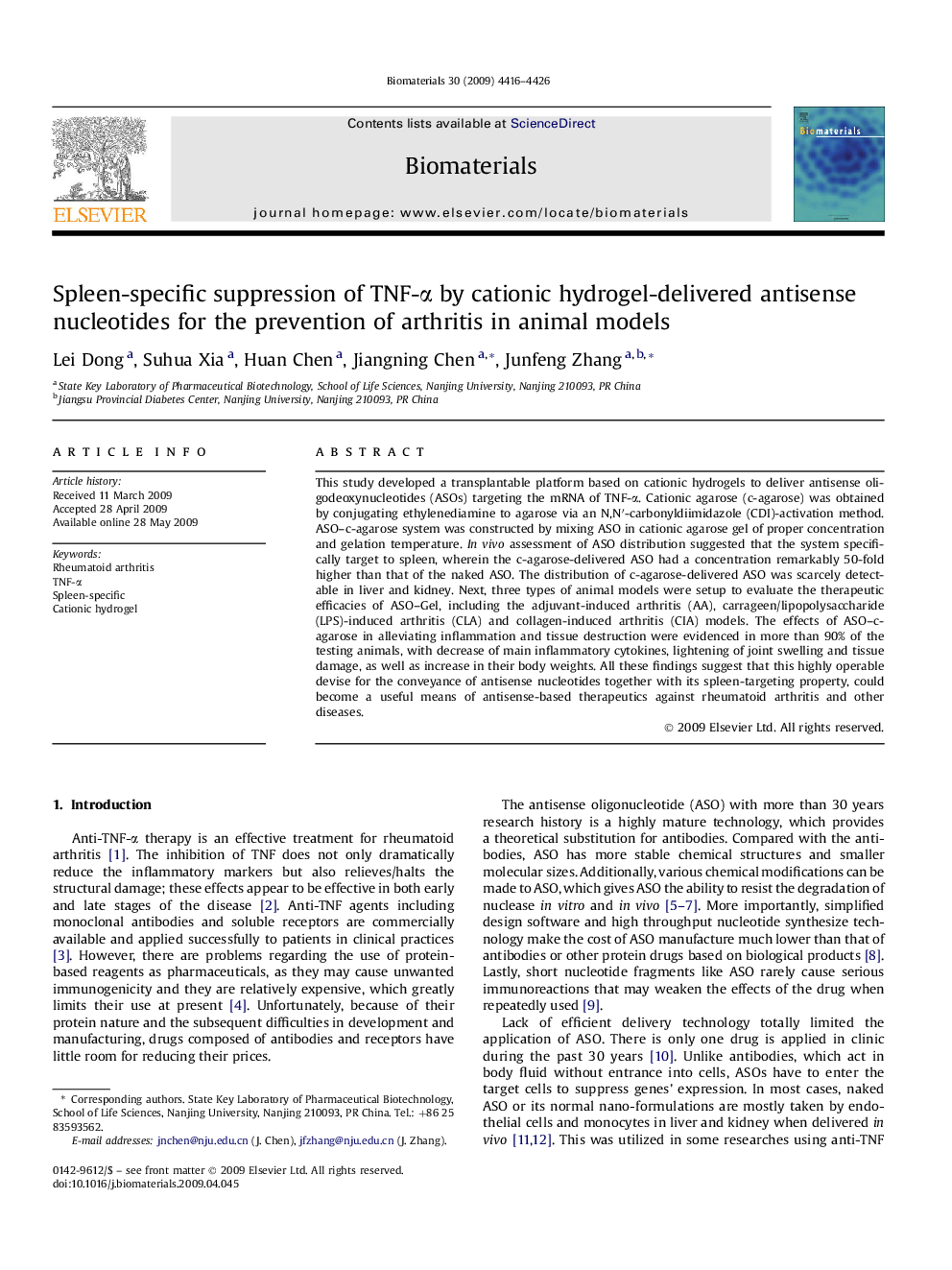| Article ID | Journal | Published Year | Pages | File Type |
|---|---|---|---|---|
| 10230041 | Biomaterials | 2009 | 11 Pages |
Abstract
This study developed a transplantable platform based on cationic hydrogels to deliver antisense oligodeoxynucleotides (ASOs) targeting the mRNA of TNF-α. Cationic agarose (c-agarose) was obtained by conjugating ethylenediamine to agarose via an N,Nâ²-carbonyldiimidazole (CDI)-activation method. ASO-c-agarose system was constructed by mixing ASO in cationic agarose gel of proper concentration and gelation temperature. In vivo assessment of ASO distribution suggested that the system specifically target to spleen, wherein the c-agarose-delivered ASO had a concentration remarkably 50-fold higher than that of the naked ASO. The distribution of c-agarose-delivered ASO was scarcely detectable in liver and kidney. Next, three types of animal models were setup to evaluate the therapeutic efficacies of ASO-Gel, including the adjuvant-induced arthritis (AA), carrageen/lipopolysaccharide (LPS)-induced arthritis (CLA) and collagen-induced arthritis (CIA) models. The effects of ASO-c-agarose in alleviating inflammation and tissue destruction were evidenced in more than 90% of the testing animals, with decrease of main inflammatory cytokines, lightening of joint swelling and tissue damage, as well as increase in their body weights. All these findings suggest that this highly operable devise for the conveyance of antisense nucleotides together with its spleen-targeting property, could become a useful means of antisense-based therapeutics against rheumatoid arthritis and other diseases.
Related Topics
Physical Sciences and Engineering
Chemical Engineering
Bioengineering
Authors
Lei Dong, Suhua Xia, Huan Chen, Jiangning Chen, Junfeng Zhang,
